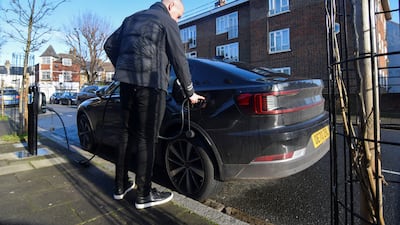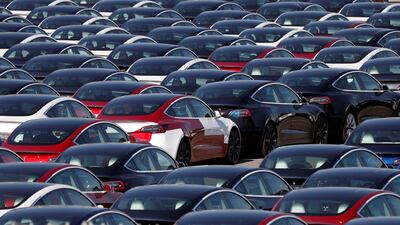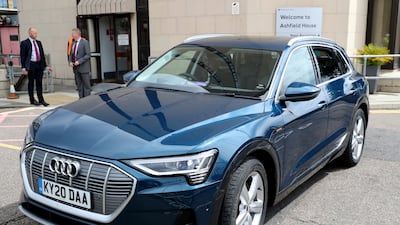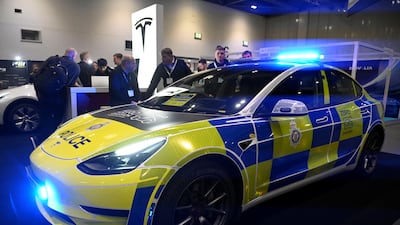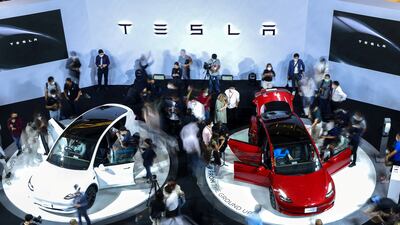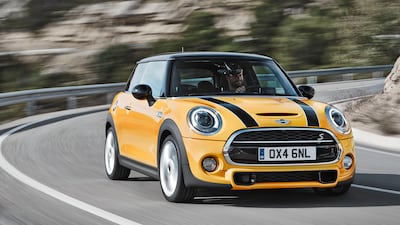Car sales in the UK rose 14.7 per cent in January, compared to a year earlier, according to the Society for Motor Manufacturers and Traders.
About 131,994 new cars were registered in January, the sixth month of sales rises in a row.
Electric vehicles were the power behind the increase, with registrations of hybrid electric vehicles up by more than 40 per cent.
However, the market share for fully-electric vehicles fell to 13.1 per cent, down from an average of 16.6 per cent last year.
The SMMT anticipates total registrations across the whole of 2023 will reach 1.79 million, up 11.1 per cent on last year.

But the industry body also said that the pace of the introduction of electric vehicle charge points is not keeping up with demand.
It said the ratio of new charge point installations to new plug-in cars fell from 1:42 in the final three months of 2021 to 1:62 between October and December last year.
“The automotive industry is already delivering growth that bucks the national trend and is poised, with the right framework, to accelerate the decarbonisation of the UK economy,” said SMMT chief executive Mike Hawes.
“The industry and market are in transition, but are fragile due to a challenging economic outlook, rising living costs and consumer anxiety over new technology.
“We look to a Budget that will reaffirm the commitment to net zero and provide measures that drive green growth for the sector and the nation,” he said.
“Back down to earth”
Ian Plummer, commercial director at online vehicle marketplace Auto Trader, said that electric car sales had “come back down to earth.”
“On our marketplace, demand for new electric vehicles is at a three-year low thanks to higher energy bills,” he said.
“They now account for fewer than one in 10 of all new car inquiries being sent to retailers — down from almost 30 per cent last summer.”
